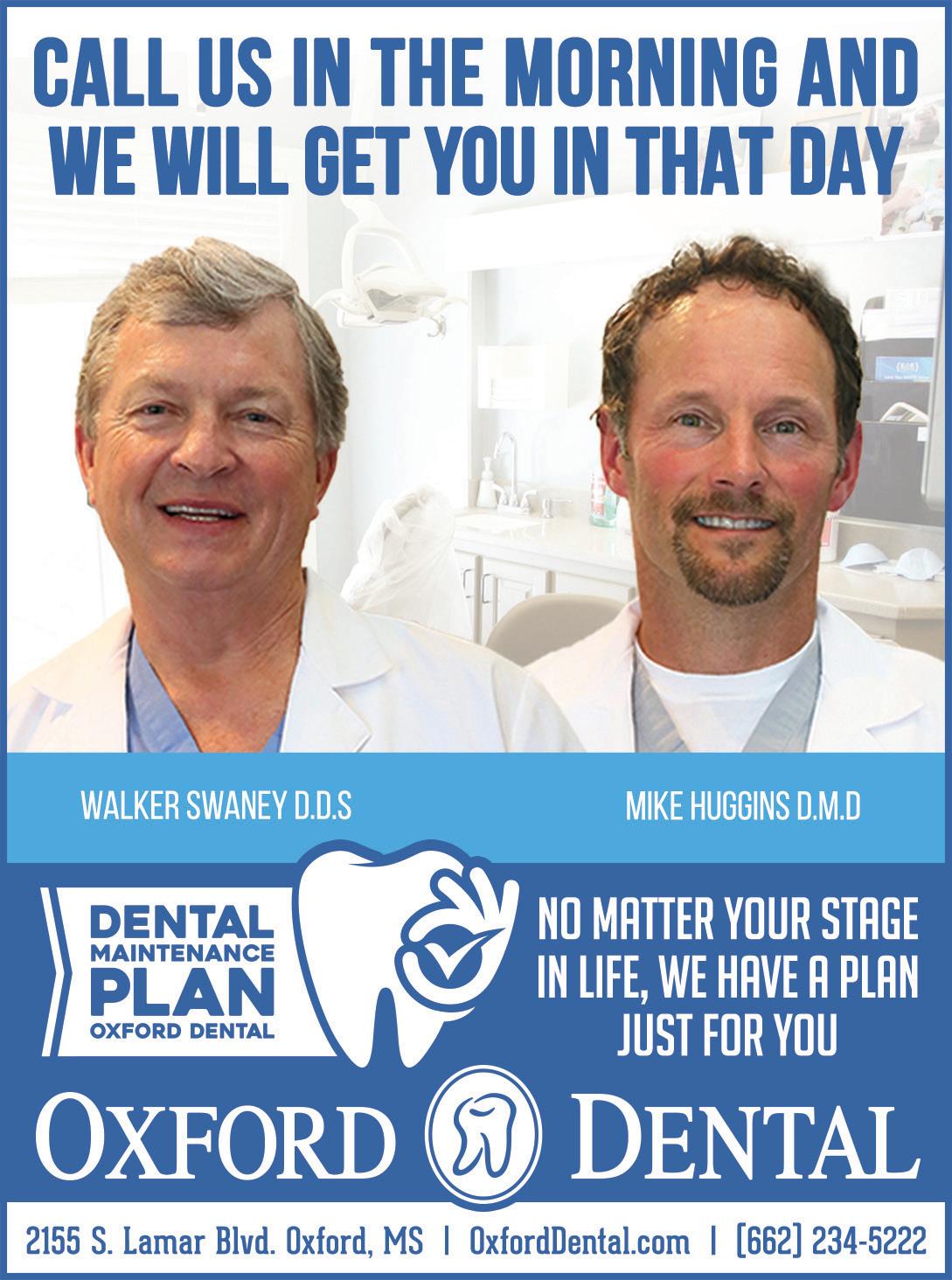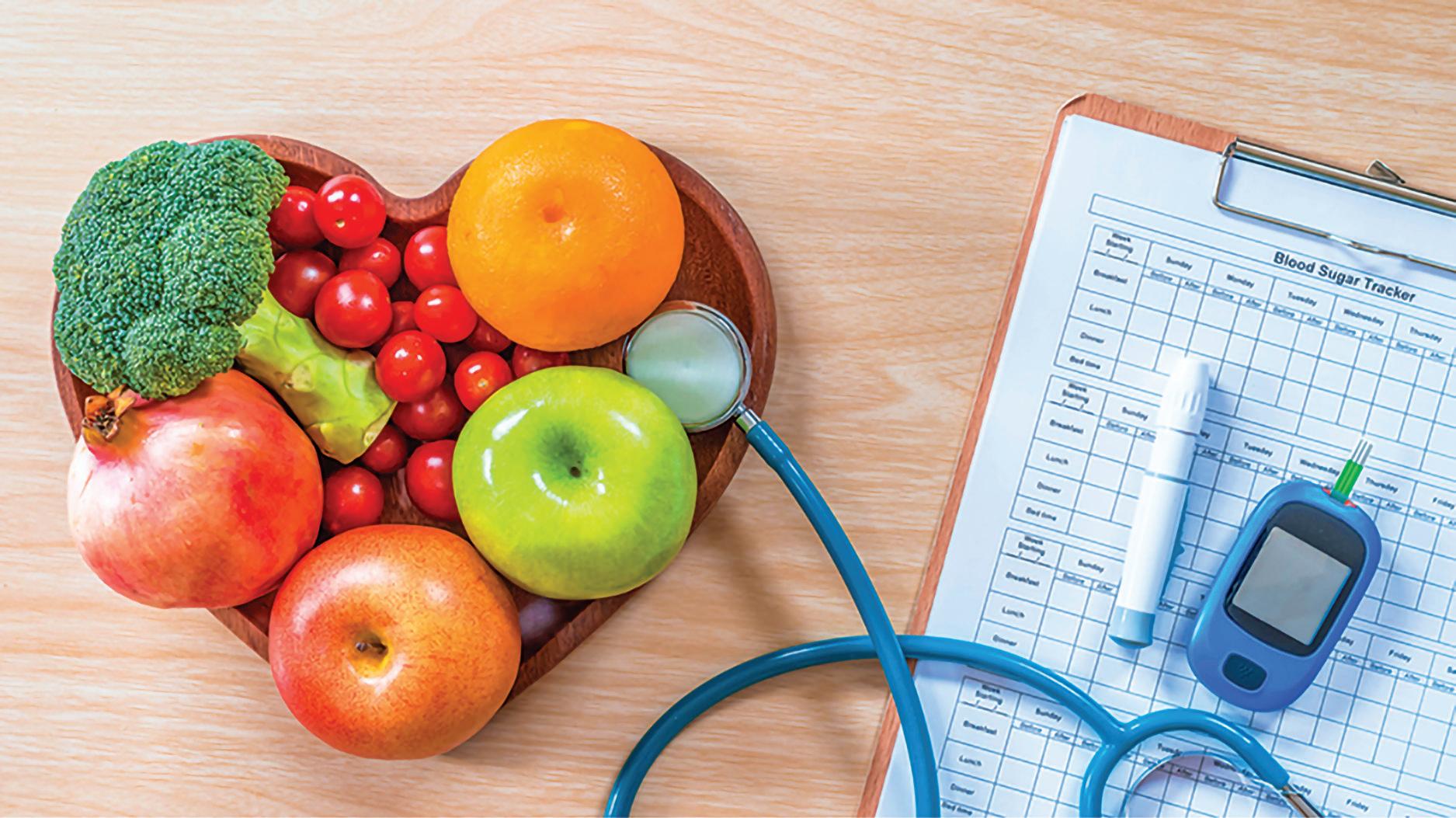
8 minute read
BRAIN HEALTHY-HABITS
from Good Health 2020
BRAIN-HEALTHY HABITS to embrace
Cognitive decline is a condition that is often associated with aging, but even middleaged people can experience memory loss or cognition issues. The Alzheimer’s Association says that more than five million Americans are living with Alzheimer’s disease and other dementias. By 2050, that number could rise to as high as 16 million people. More than 747,000 Canadians are living with Alzheimer’s or another dementia, says the Canadian Alzheimer’s Association. Although there is no definitive way to prevent dementia, living a long, vibrant life may be possible by encouraging some healthy habits for the brain. “Right now, the most important thing that people don’t do enough of is sleep,” said Dr. Megan Edwards of the Oxford Neurology Clinic. “Most middle-aged adults need seven to nine hours of sleep. Your brain and your body need that. But there’s also eating a healthy diet and exercise and a lot of things you can do earlier in life that will By NATHANAEL GABLER
Advertisement
Did you know you can now pick up issues of Oxford Magazine at dozens of locations around town?
Enjoy the great writers and stories about Oxford and the surrounding area. LOOK FOR OUR FREE RACKS HERE:
Proud Larry’s Ajax Saint Leo Chamber of Commerce Holli’s Sweet Tooth Graduate Hotel Uptown Coffee Tallahatchie Gourmet The Parlor Cups Beagle Bagel Big Bad Breakfast Starbucks Oxford Floral High Cotton Wine & Spirits YaYa’s Frozen Yogurt Soulshine Pizza Abner’s – University location Thacker 564 Southern Chic The Chancellor’s House Pop Fizz DSquared Baptist Memorial Hospital Oxford Orthopaedics Magnolia Lighting Oxford University Bank Bank of Commerce Blo/Dry Bar Amy Head Cosmetics SummerHouse 4 Seasons Holcomb Dunbar Magnolia Brick My Michelle’s Tres Belle Neilson’s Hinton + Hinton Provision Katherine Beck Square Books Newk’s – University & Jackson Lost Pizza

help as you age.”It is never too late or too early to begin health and lifestyle changes. EXERCISE Becoming more active can improve brain volume, reduce risk for dementia and improve thinking and memory skills. The journal Neurology found that older people who vigorously exercise performed better on cognitive tests than others of the same age, placing them at the equivalent of 10 years younger. Increased blood flow that occurs with physical activity may help generate new neurons in the hippocampus, an area of the brain involved with learning and memory. “A big thing is exercise helps with stress level,” Edwards said. “It helps you relax and take your mind off things. And in the long-run, stress is something that can be very detrimental to your brain health overall. Then physically, exercise helps as it will speed up your metabolism and help burn calories.” The Harvard Medical School says aerobic exercise may help improve brain tissue by improving blood flow and reducing the chances of injury to the brain from cholesterol buildup in blood vessels. QUIT SMOKING The Alzheimer’s Association indicates that evidence shows smoking increases the risk of cognitive decline. Smoking can impair blood flow to the brain and cause small strokes that may damage blood vessels. “People think smoking is just going to hurt the lungs. But smoking is one of the most detrimental things for the blood vessels in your entire body, and that effects the brain,” Edwards said. “Smoking puts you more at risk for strokes because of that. Also, you have Lacunar vessels in your brain which smoking causes to close off over time. That disrupts a bunch of pathways in neurons that causes a lot of problems as you age, particularly with memory.”
The VOTES are IN!
Best of Oxford COMING SOON!


June/July 2020
EAT HEALTHY FOODS Foods that are good for the heart and blood vessels also are good for the brain. These include fresh fruits and vegetables, whole grains, fish-based proteins, unsaturated fats, and foods containing omega-3 fatty acids. “The diet is a big thing that I always press my clinic patients to follow. It’s not really what you eat so much as eating fresh foods, or even frozen as long as it’s not processed,” Edwards said. “The earlier you do that, the better off you will be. Plus, that will just help you have better eating habits as you get older.” Neurologists state that, while research on diet and cognitive function is limited, diets, such as Mediterranean and Mediterranean-DASH (Dietary Approaches to Stop Hypertension), may contribute to a lower risk of cognitive issues. CONSUME CAFFEINE Caffeine may help boost memory performance and brain health. A Journal of Nutrition study found people ages 70 and older who consumed more caffeine scored better on tests of mental function than those who consumed less caffeine. Caffeine may help improve attention span, cognitive function and feelings of well-being. Information from Psychology Today also indicates caffeine may help in the storage of dopamine, which can reduce feelings of depression and anxiety. In addition, compounds in cocoa and coffee beans may improve vascular health and help repair cellular damage due to high antioxidant levels. WORK THE BRAIN Engaging in mentally stimulating activities can create new brain connections and more backup circuits, states Dr. Joel Salinas, a neurologist at Harvard-affiliated Massachusetts General Hospital. Working the brain through puzzles, reading and participating in social situations can stimulate the release of brainderived neurotrophic factor (BDNF), a molecule essential for repairing brain cells and creating connections between them. A good way to combine these lifestyle factors is to take an exercise class with friends, mixing the social, stimulation and exercise recommendations together. Cognitive decline can come with aging, but through healthy habits, people can reduce their risk of memory loss and dementia. “Right now, the most important thing that people don’t do enough of is sleep.” Dr. Megan Edwards Oxford Neurology Clinic
to eat healthier every day SIMPLE WAYS 3

Diets can be difficult to navigate. Since no two people are the same, a healthy diet that satisfies one person won’t necessarily satisfy another. Vegetarians might be perfectly happy without chicken or steak, while some people might shudder at the notion of never indulging in the occasional filet mignon. While the most effective diets tend to be those that emphasize nutrition while still allowing individuals to indulge in some of their favorite dishes in moderation, the following are three ways that everyone, regardless of their personal preference, can eat healthy every day. 1. Eat lots of whole-grain carbohydrates. Fad diets tend to paint carbs as the enemy, but various studies have shown just how integral carbohydrates, particularly whole-grain varieties, are to a healthy diet. One such study published in 2018 in the medical journal The Lancet Public Health found that diets that got between 50 and 55 percent of their calories from plantbased carbohydrates like whole grains were associated with a lower risk of mortality than low-carb diets that favored animal-derived protein sources. When buying carbs at the grocery store, shoppers can opt for wholegrain varieties, including whole-grain pastas, brown rice and cereals. That won’t require sacrificing flavor and makes for a simple way to eat healthier every day.
2. Make a concerted effort to eat more fruits and vegetables. The United Kingdom-based National Health Service, which is the largest single-payer healthcare system in the world, recommends eating at least five portions of fruits and vegetables every day. That may sound like a lot, but it’s pretty easy to incorporate all those healthy fruits and veggies into a diet. For example, add a serving of antioxidant-rich blueberries to your cereal bowl each morning. At dinner time, allow vegetables to take up the most real estate on your plate. The Centers for Disease Control and Prevention note that diets rich in fruits and veggies can help people control their weight and may even reduce their risk for certain diseases, including cancer.

3. Kick added sugars to the curb. Avoiding added sugars is another way anyone, regardless of their food preferences, can eat healthier every day. Healthy foods such as fruit contain natural sugars, and these don’t pose a threat to overall health. However, added sugars, which the Harvard Medical School notes are found in many foods and can include honey, molasses and corn syrup, can increase a person’s risk for various conditions and diseases, including obesity, heart disease and diabetes. Fruit contains fiber that slows the absorption of natural sugars, but the body digests added sugars much more quickly, leading to an uptick in blood sugar levels that can ultimately contribute to diabetes. Added sugars can be found in a host of foods and beverages, including some that aren’t generally considered unhealthy, like bread, certain breakfast cereals and pasta sauces. When shopping, consumers should read nutrition labels and avoid products with excessive amounts of sugar.
Eating healthy does not require people to abandon their favorite foods. A few simple adjustments can be all it takes to improve the nutritional value of your diet.
OXFORD CENTER 300 Enterprise Drive, Suite B Oxford, MS 38655 P: 662-234-0010
Physical Therapy Manual Therapy Work & Industry Services Orthopedics Occupational Therapy Pain Management Sports Medicine Pelvic Floor Rehabilitation Pre & Post Op Rehabilitation Spine Stabilization
FOR A COMPLETE LIST OF LOCATIONS AND OUR SERVICES, VISIT US ONLINE: MYELITEPT.COM





Don’t let heartburn ruin your life.

Acid reflux disease affects approximately 30% of the American population, causing daily heartburn symptoms – but heartburn is only one sign that you may have gastroesophageal reflux disease, or GERD, a serious condition that has been linked to esophageal cancer. Baptist Heartburn Treatment Center at Baptist North Mississippi can diagnose GERD and offers minimally invasive treatment that can help stop reflux. Please go to baptistonline.org/heartburn to learn more and take our short online quiz to find out if you might have GERD.
baptistonline.org/heartburn 662-636-2120
A Legato Heartburn Treatment Center








